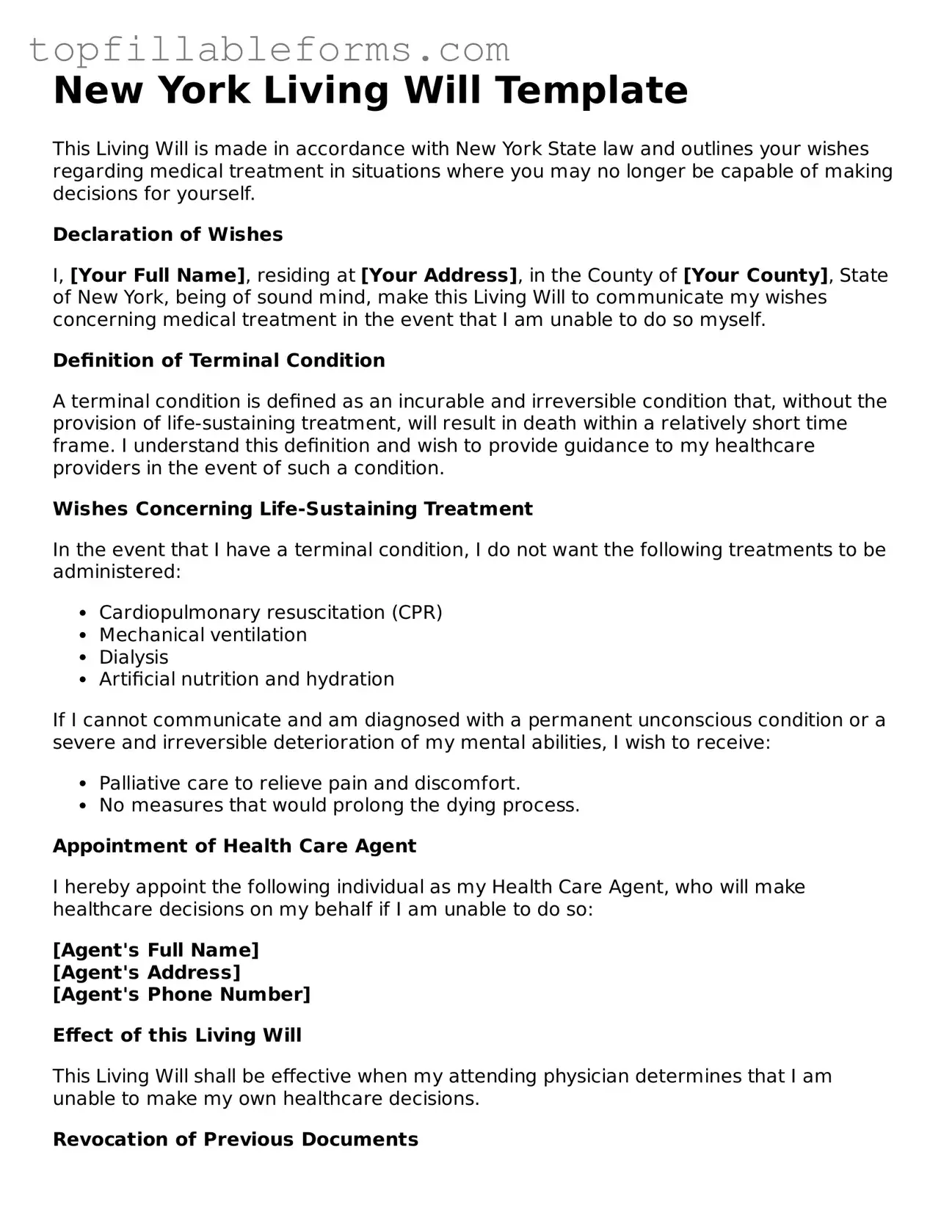Attorney-Verified Living Will Template for New York
A New York Living Will is a legal document that allows individuals to express their wishes regarding medical treatment in the event they become unable to communicate those preferences themselves. This form is essential for ensuring that one's healthcare decisions are respected and followed. By outlining specific desires about life-sustaining measures, individuals can provide guidance to their loved ones and medical professionals during critical times.
Open Living Will Editor Here

Attorney-Verified Living Will Template for New York
Open Living Will Editor Here
Finish the form now and be done
Finish your Living Will online by editing, saving, and downloading fast.
Open Living Will Editor Here
or
▼ PDF File
